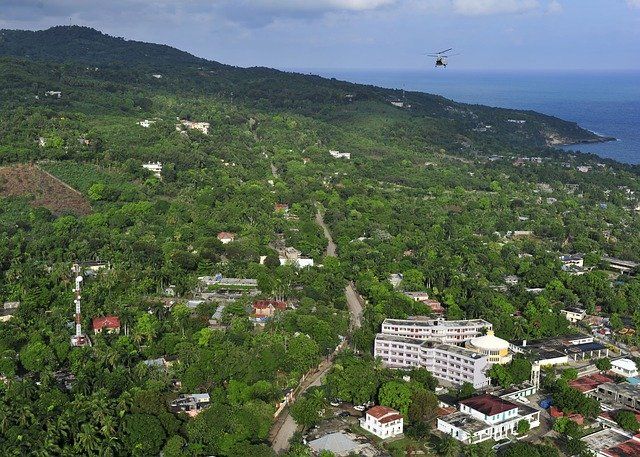Samuel William Clark, whose death at the age of sixty-six was announced in the December issue of Evangelical Times, knew from the age of sixteen that he was going to be a missionary. This interest blossomed when, at the age of nineteen and already engaged to his future wife Evelyn, he heard and met James Stewart, founder of the European Evangelistic Crusade (EEvC). He and Evelyn, individually, heard God’s call to proclaim the gospel overseas and set about preparing for their future work.
Labours in France
Bill had been a promising student of electrical engineering, but declined an opportunity to study at Boston’s prestigious Massachusetts Institute of Technology, taking up a humble apprenticeship instead. Although he saw the value of professional qualifications, he would not allow anything to distract him from the call he had received. That was typical of the man. Thus, on completion of his secular studies, he and Evelyn entered the Bible Training Institute in Glasgow, and studied there from 1953-55.
God’s purpose became more clearly defined during these years of study. First Europe and then France became the focus of their call. They were accepted as missionaries by the EEvC in 1955, worked for six months in Southern Ireland, and finally left for France in 1956. James Stewart’s wife Ruth drove them to Dunkirk in her car and left them there. They were the first couple to work in France for EEvC, and were left to find their own work and even their own accommodation!

They attended language school in Paris and helped to run a small church there. Then in 1957 the EEvC sent them to Alsace, where Bill engaged in tent-mission and church-mission evangelism with other EEvC missionaries. It was around this time that the mission decided to split up, with the British, Swiss and North American branches going their separate ways as different organisations. The British branch assumed the new name of European Missionary Fellowship (EMF), which it still bears today.
Doctrines of grace
During this period of intense evangelistic work, and through his own study of Scripture, Bill Clark came to understand the doctrines of grace, sometimes called ‘Calvinism’. He saw that the Bible taught that man in his natural state was totally unable to ‘receive the things of the Spirit of God’ (1 Corinthians 2:14), and thus to repent and believe the gospel. Therefore it was necessary for God, in sovereign mercy, to impart spiritual life before anyone could respond to the gospel. He also saw that this gift of spiritual life was, in God’s wisdom, given as men and women heard the gospel of ‘Jesus Christ and him crucified’ (1 Corinthians 2:2); that is, salvation came only through the grace of God and the preaching of Christ as God’s sole and sufficient remedy for sin.
An independent missionary
Bill became an independent missionary, but retained his links with EMF. Many years later, he was instrumental in helping the Mission to relocate its headquarters to Welwyn, in Hertfordshire.
With a wife and three children to support, it took great faith to surrender a regular stipend from the mission for … what? But Bill believed that the Lord would always provide for those who followed the path of obedience, and proved it again and again throughout his life. He never asked anyone but God for money, either for himself or for his work.
Within days of resigning, he received a phone call from the USA. A missionary fund had been established in Houston, but could not be used for its originally intended purpose. Those responsible, knowing nothing of Bill’s personal situation, asked if he could use the $120 per month provision. Thus not even a single month passed without personal support.
Large church
For two years, Bill Clark worked as one of three full-time pastors in a French Reformed church at Besançon, near Dijon. The church was large, with over two thousand members, but attendance was normally about one hundred and the church’s doctrinal position was broad. Some hard but valuable lessons were learned there, and Bill was able to minister effectively to a small group of evangelical believers in the church, and to a further group of forty to fifty people who met at a Rest Home belonging to the church in another part of the city.

Marseilles
In 1968 Bill responded to an invitation from the Baptist Federation to set up a work in Marseilles. The church he planted there originally met in a converted garage. But during the ‘great strike’ of 1968, when the men of the church had no work, he led them in a project to convert a warehouse into a church building seating two hundred. By 1974 the congregation numbered seventy to eighty people, and he had taken the church out of the Baptist Federation on doctrinal grounds. At this time, however, his life’s work was to take on an unexpected new dimension.
Evangelical Press
Evangelical Press (EP) had been founded by Robin Bird and was a comparatively small work which published booklets and imported selected titles from the USA. Robin sought the help of Yorkshire farmer and preacher Willis Metcalfe, who agreed to set up a Board to run EP. Once this had been done, the first task was to recruit a Managing Director to run the work.
Several candidates were interviewed, but none appointed. It was at this point that Omri Jenkins suggested Bill Clark’s name. During his time in Alsace, Bill had been troubled by the complete absence of Reformed books and commentaries in print in the French language. He had therefore approached Banner of Truth and had set up a branch in France under the name Bannière de la Vérité. to publish Reformed books in French. Initially, he did all the translation work himself, but later obtained help from others. The French work had grown and had eventually become independent of Banner, with the title Grâce et Vérité.
It was against this background that, in 1974, Evangelical Press approached Bill to take up leadership of the work in the UK. When the Board interviewed him, they found the tables turned; Bill Clark seemed to be interviewing them! He was not about to abandon his missionary calling to become a businessman. Would he be allowed, he asked, to run EP as a missionary enterprise? The Directors were delighted, and praised God for such an attitude. Bill Clark was appointed and returned to the UK in 1974.
Publishing with a mission
Under Bill Clark’s leadership, EP prospered and grew. He worked assiduously to encourage new authors to write, seeking manuscripts that exalted Christ and the sovereign grace of God. Although all books were approved by the Board before acceptance, it was Bill who set the tone and shaped the development of Evangelical Press. Mistakes were made, and not every book published met his own exacting standards. But increasingly EP earned a reputation for readable, modern books, which taught the age-old gospel of God’s grace. Perhaps his greatest achievement in EP was to launch and develop the hugely successful ‘Welwyn Commentary’ series, which now covers most books of the Bible.
The mission field was always in the forefront of his thinking. Travelling frequently, he established publishing programmes in Italy, Portugal, the Philippines, France (as Europresse), West Africa (Europresse Afrique) and Belarus. Some of these programmes have since closed down or become independent, but those in France, West Africa and Belarus continue under EP’s auspices.

Gospel radio broadcasts
Sometime in 1977, Geoffrey Cook, who worked for the Far Eastern Broadcasting Association (FEBA), asked Bill’s opinion of a recorded round-table discussion in French. FEBA were looking for Christian material in the French language to broadcast from the Seychelles to French-speaking Africa. Bill pronounced the recording hopeless, only to be invited to do something better himself! Rising to the challenge, he recorded his first fifteen-minute sermon, which was duly broadcast. From there on, the French broadcasts became a regular weekly feature on FEBA.
Opportunities for the broadcasts expanded, both in Africa and the Caribbean, and in 1979 they were launched on ELWA, a powerful Christian radio station based in Monrovia, Liberia. The response to this Bible-preaching ministry can be gauged by the fact that between 350 and 500 requests were received each month for copies of the taped messages, which were sent out free of charge. Hundreds of letters were also received each month from all over French-speaking Africa.
ELWA was destroyed in 1990 during the Liberian civil war, and the broadcasts continued on less powerful transmitters with correspondingly smaller response. However, the seed had been sown for a new work, namely a correspondence course for African preachers, which was introduced through the broadcasts.

Preachers and churches
The correspondence courses were a co-operative venture between Bill Clark and Ken Wimer, who was then working as an independent missionary in Ivory Coast. The courses took the students through the books of Romans, Hebrews and I Corinthians, simply asking questions which could be answered only by close study of the Scriptures themselves. Thus the students were led to develop a truly biblical and Reformed theology. In many cases, this revolutionised their ministries and, in some cases, caused them to be ejected from their churches! Prospective students were carefully vetted to ensure they would benefit from the course. Even so, several hundreds of African brethren have completed the courses to date.
This indigenous movement continues to this day. The students’ work is now handled by an African pastor, Jean Katla, while pastor Paul N’Goran leads the literature ministry. Ken Wimer has returned to the USA but has developed new contacts in French-speaking Haiti. Above all, this teaching ministry has led to the formation of many new Reformed churches in West Africa, where the Christ-centred gospel of grace is proclaimed by Africans to Africans.
It was always a great joy to Bill to visit the Ivory Coast, Benin and other West African countries twice each year, to augment the radio and training course ministries with preaching conferences. Originally provided to bring course students together to hear Reformed gospel preaching, these conferences were increasingly run by the African pastors themselves. Similarly, church camps were begun at which several churches meet together for four days of ministry. Whole families attend and, unlike church camps in the UK and USA, the only activity available is preaching, from morning to nightfall!
This work will continue, because it is a work of God’s Spirit, not of any man. It is the only memorial that Bill Clark would have wanted.







